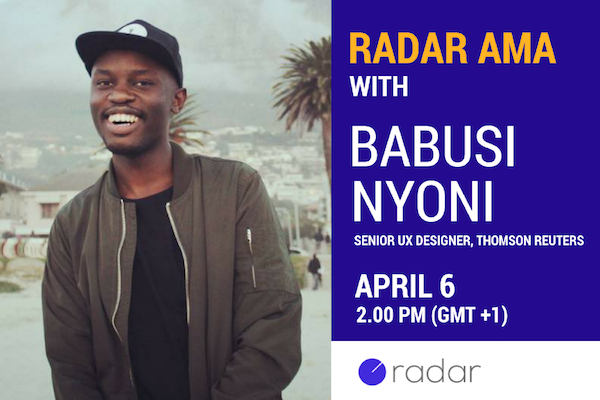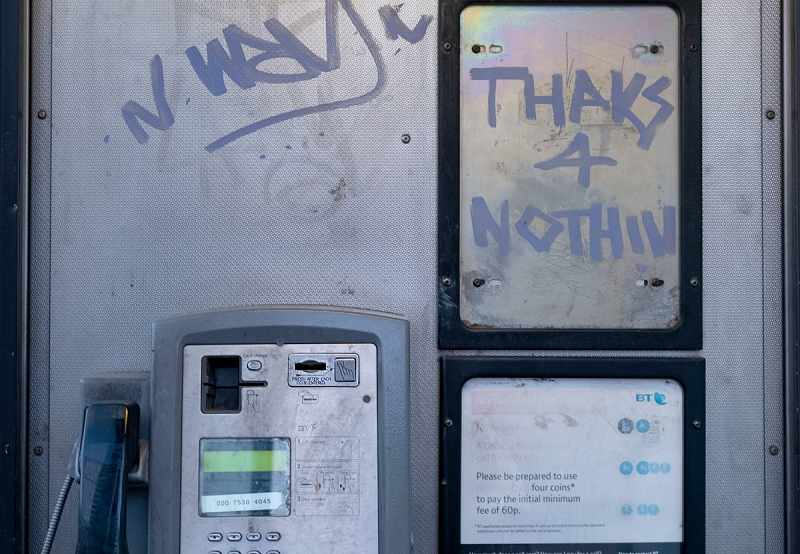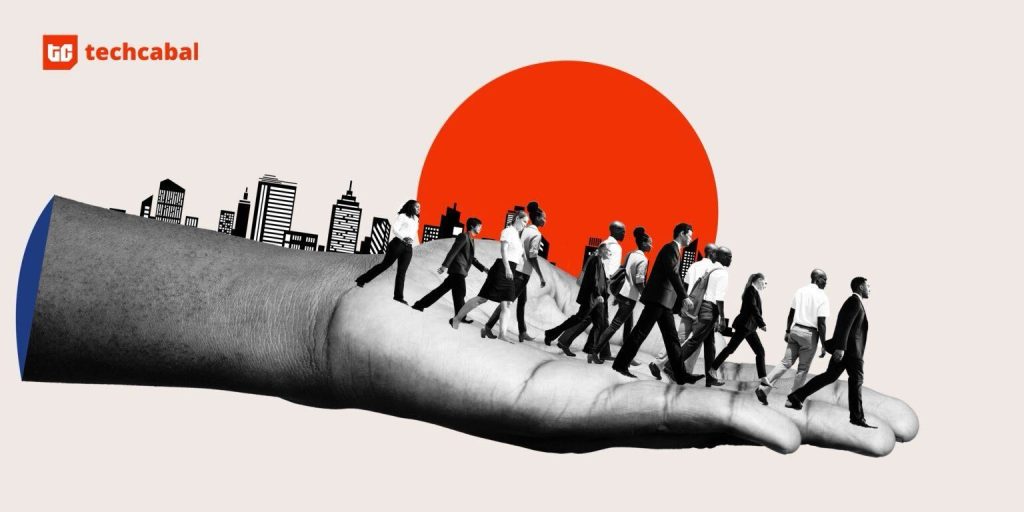Hey there! Here’s everything interesting in African technology today. Not subscribed? Click here to get this goodness in your mailbox every day at 7am (GMT + 1).
What’s happening today?
But can Solo’s new partnership with Airtel and Ren Money change the game?
Five years ago, some people bet that feature phones would still be the primary device in the hands of Africans. Others bet that sub-50 dollar smartphones would see them become ubiquitous and unlock an unprecedented era of digital content and services consumption that would make the first mobile telephony revolution of the early 2000s look like child’s play. Both schools weren’t quite right, as this graph here shows. In 2016, smartphone share which were close to reaching parity with feature phones actually tanked, and feature phone share rose by three percent. Macroeconomic factors — the poor health of the economies and weakening currencies of the continent’s biggest markets explain the trend.
The cost of acquisition remains the biggest barrier to smartphone adoption. And because of the lack of credit infrastructure, making everything pay-the-full-amount-upfront-
Last week, however, I sat with the executives of Solo, a Nigerian smartphone OEM mostly known for its eponymously named Android devices — at its core, it is actually a mobile content and services company using smartphones as a delivery mechanism. Of course, they couldn’t do better than the market where smartphone sales were concerned and seemed to have gone off the radar for the past two years. It turns out that in that time, they’ve been working a new angle to the market. At an average price that hovers around the N50,000 mark, reasonably specced smartphones are out of the reach of most Nigerians. But what if you partnered with a telco to distribute “free” devices to qualified individuals, on the condition that they pay a monthly fee via airtime recharge over 12 months?
That is precisely what Solo is doing with Airtel Nigeria. For an initial deposit of N4,120, Airtel subscribers who qualify (they have an internal heuristic) can procure a Solo Aspire M device. The only condition is that they make subsequent payments of the same amount for the next 11 months, via airtime recharge. What is more, the monthly payment comes with 1GB browsing data, 60 minutes of talk, 60 free SMS, and an unlimited social media app bundle that is essentially free access to Facebook, Twitter, WhatsApp and BBM.
The Solo Aspire M’s specs itself won’t blow anyone reading this away — our audience data tells me you most likely own an even more capable device already. But for feature phone upgrade hopefuls, the cash-strapped and increasingly narrowing middle class, and even the madam/oga that cracked their Samsung Galaxy S7 screen last week and might not be inclined to cough out money that can buy a car to replace it right away, it’s perfect.
The business case looks rather compelling. Nigeria’s monthly mobile ARPU is somewhere between 4 – 6 USD, or in the general vicinity N2,000. Whether a lot of people will be happy to spend twice that a month in exchange for not having to pay the full price of the device remains to be seen. But as long as Solo delivers the goods, I can see companies signing up their junior staff, parents acquiring for their kids, and grown-up kids acquiring for their parents and grandparents in rural areas. Not only does the monthly payment spread out the expense hit, it also ensures that the device will remain useful to its user for as long as the payment is made. And what happens if the user doesn’t pay the monthly fee? Well, the device comes with software that locks the device and renders it unusable, till the owner pays up. Solo’s CEO, Tayo Ogundipe, tells me that Nigeria’s computer village boys in Ikeja who have had the device for months are yet to crack or flash it successfully. Rather than crack, the phone is more likely to brick, after intense pressure. This also makes the phone quite useless to thieves as well.
The entire enterprise has quite a few moving parts. The security and DRM software is made by a Finnish partner. On the credit side of the equation, Airtel and Solo are working with Ren Money to pre-qualify and onboard new users. But if everything goes well, Solo and partners might be on to something really interesting. Could this, with other telcos (and other device OEMs?) on board, become a model that drives significant smartphone adoption across the continent? The public launch is today, and I hope it goes well from there.
PS: If there’s any newsies reading this that would like to interview Solo execs, I can hook you up. There is far more depth and nuance to this story than I am able to muster. This was actually intended to be one paragraph, now look what’s happened…
Sincerely,
Retired tech blogger,
Bankole.
We will now resume regular programming…
1. Nigerian Agric startup, Tomato Jos, has raised $2.1 million in a funding round led by emerging markets-focused venture capital fund, VestedWorld. This new funding will go a long way in realising the company’s vision to create a commercial tomato farm, run to international standards that will integrate thousands of Nigerian farmers into the tomato value chain and produce the country’s only domestically-processed tomato paste. Congratulations to the Tomato Jos team. Link
2. Namibia is following in Nigeria and South Africa’s footsteps and is now planning to mandate that all SIM cards in the country be registered. The DG of the country’s Central Intelligence Service said the SIM registration will help in “preventing and countering violent extremism.” Link
3. AfriLabs has elected five new members into key leadership positions on its board – Africa’s first lady of tech, Rebecca Enonchong, is the new board chair while Bernard Chiira, Rakoroarivo Noharintsafidy Sarobidy, Regina Mbodj and Nekesa Were make up the rest of the team. They were elected by members of the AfriLabs community in a virtual election and are expected to resume office in a few weeks. Link
4. South Africa’s Independent Communications Authority (ICASA) might soon regulate data prices in the country. According to ICASA’s acting chairperson, Rubben Mohlaloga, the body is currently determining whether data prices should be regulated and hopes to announce its regulation plan once it has established a framework. I hope this doesn’t go the way of Nigeria’s data price regulations.
5. 79 days of internet shutdown in Anglophone Cameroon. #BringBackOurInternet
+ Oh nothing here, just pictures of Papa Biya stunting on Instagram.
This April, ChatClass NG is offering a 2-month program designed to develop and support social media managers. The program will feature a thorough masterclass, real-life assessments and internships. Apply here if you’re interested.
Other interesting things…
+ Facebook now has 170 million users in Africa; that’s up from 146 million as at June 2016. Link
+ And Facebook’s baby, Whatsapp, might be entering into the digital payments space in India. Link
+For the third year in a row, eTranzact’s books are in the blues. The company recorded profit before tax of N865 million and revenue of N10.4 billion in 2016. Link
+ Uber Nigeria and SWIFT Networks are partnering to offer VIP Uber riders free wifi on rides courtesy of SWIFT’s Red Cheetah wifi service.
+ In 2017, nine out of the world’s top 20 high-growth economies are expected to be in Africa. Where & how are firms investing in the region? Link
+ Timely infographic on Africa’s Exploding Tech Startup Ecosystem. Link
+ There’s been a lot of talk about Nigerian companies having to employ Indian developers for their software projects because there aren’t enough “good developers” in Nigeria. Well, plot twist, Indian engineers are so unemployable that a tech giant will train high-school graduates itself.
+ US customers using the Western Union mobile app can now use Apple Pay to transfer money across the world. Link
+ Eugen Rochko got fed up with Twitter so he decided to build his own clone. He’s now at 41k users. Link
Hot topics on Radar
+ We’re hosting Senior UX designer, Babusi Nyoni, on Radar at 2pm today, so we decided to ask him some personal questions. Read his responses here then head over to Radar to join the AMA this afternoon. See ya.
Upcoming events…
Abidjan: African Private Equity and Venture Capital Association (AVCA) conference, April 3rd to April 7th. Link
Lausanne: Seedstars World Summit, April 3rd to April 6th. Link
Lagos: IBM Bluemix Cloud Computing Platform Awareness Workshop, April 6th. Link
Cambridge: MIT Sloan Africa Innovate Conference 2017, April 7th to April 8th. Link
Lagos: Health x Tech Drinks, April 8th. Link
Lagos: Microsoft Azure and Bizspark Training, April 8th. Link
Lagos: Data Hack Meetup, April 8th. Link
Upcoming deadlines…
Fincluders Startup Challenge: Application deadline is April 7th, 2017. Link
West Africa Global Impact Challenge: Applications close on April 7th. Link
That’s all folks!
Actually, that’s not quite all. It’s me again, Bankole, the long-winded interrupter who’s also made this digest 20 minutes late (sorry!). Thanks for reading! But I have one more thing to ask for. Money is the bicycle of evangelism. In this case, TechCabal’s evangelism. We would like to appreciate all the sponsors who have supported the Daily Digest up till now, even though we didn’t advertise the fact that you can now advertise. There, I’ve said it. If you like the work that we do, and you also want to reach nearly 4,000 technology influencers across Africa and beyond who get this in their inbox at 7am (GMT +1), Monday through Friday. All you have to do is hit reply, or email me, bankole@bigcabal.com.
Bless up, and don’t forget to share.
There’s bomb jollof and everything African tech in today’s TechCabal digest. Get it here – 


















